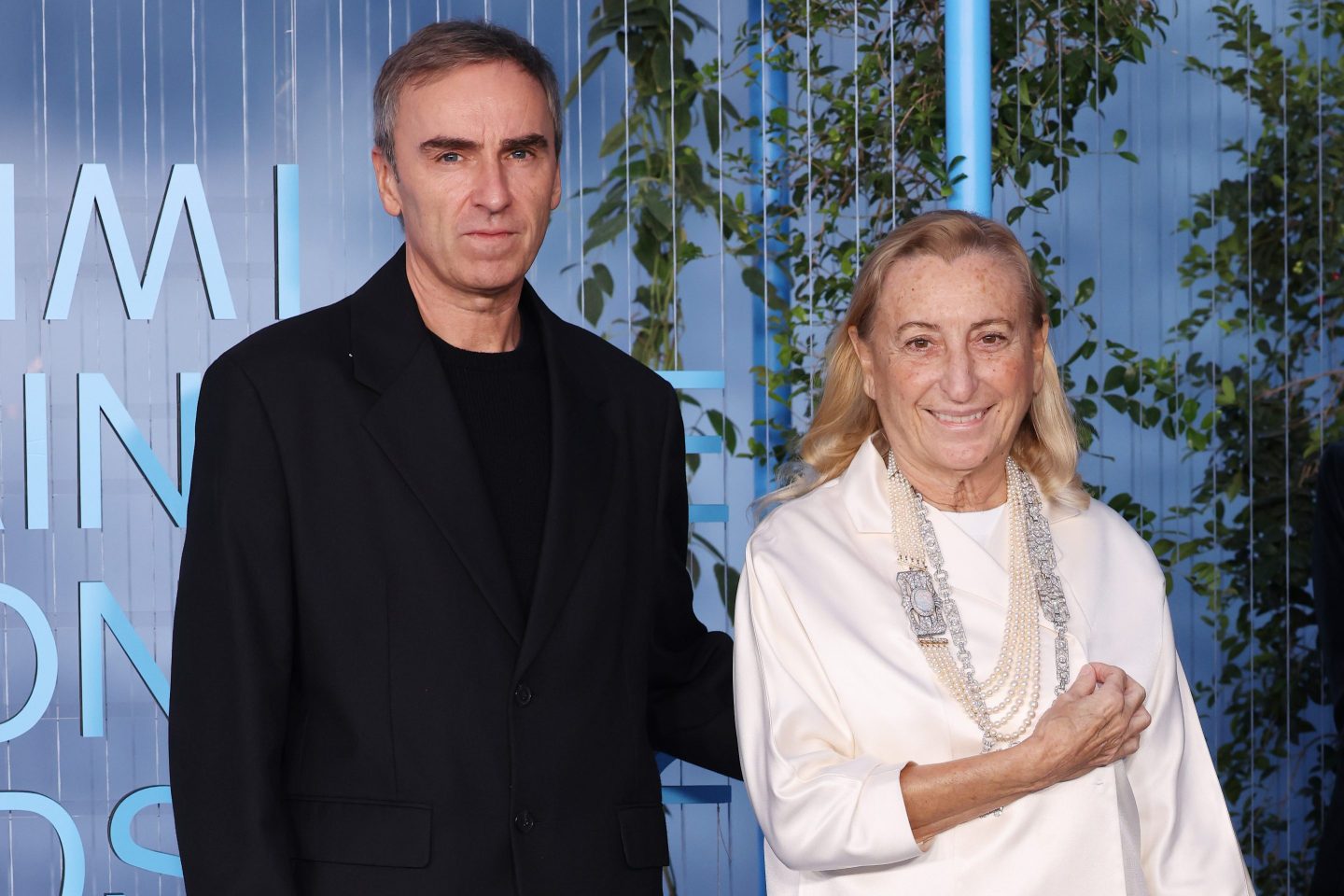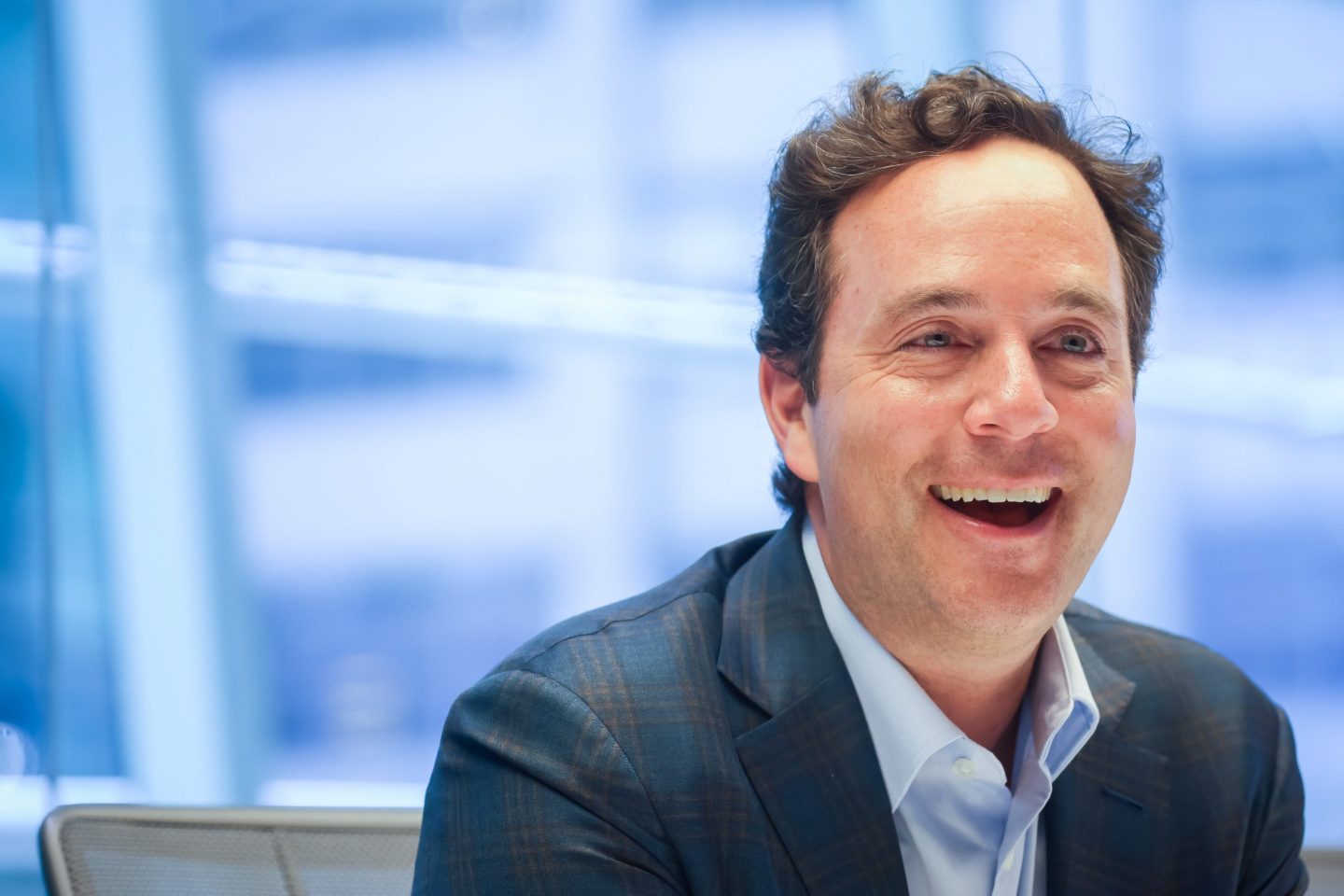It’s no secret that Gen Z often gets flak, with new criticisms including that they’re the hardest generation to work with and got too many trophies growing up. But the bosses at Prada disagree.
Instead, co-creative designers Miuccia Prada and Raf Simons want to harness the bright minds of tomorrow.
“Youth is the future. It is hope,” Prada, a baby boomer, told The Guardian backstage at their recent menswear show in Milan.
“We wanted to do something that would express youthful optimism because the times are so bad,” Prada said of their new collection.
Simons, who joined Prada as co-creative director of the brand in 2020, added that when they were creating the collection, the duo “wanted to think like the fresh minds of the youth.”
“Sometimes, when you get older, you overthink and limit yourself,” the 56-year-old said. “When you are young, you just go. And we like that spirit.”
Are young minds really brighter?
Prada and Simons aren’t the first leaders to want to bottle the creativity of youngsters.
At The Body Shop, Gen Zers have been invited to the board room to share their light bulb moments with management, give input on projects in the works, and, crucially, make the brand attractive to the next generation of customers.
But don’t expect a shadow board of bright young minds to automatically translate to bright new ideas; the link between creativity and age is tenuous at best.
Research has shown that we actually hit our creative peak at around 40 years old—not in our 20s—because as we age, we have colorful and inspiring experiences before cognitive decline starts to creep in.
What’s more, those with more working years behind them are more likely to have the seniority, confidence, and assertiveness to challenge the status quo and share their outlandish innovations than those just starting out in their careers.
Gen Z’s new age thinking is what’s got them a bad rep
While some leaders clearly value Gen Z’s ability to think differently from the herd—it’s also exactly why they’re being labeled as challenging colleagues.
Recent research from Resume Genius highlighted that 45% of employers find Gen Z the most difficult generation to work with, with 50% of Gen Z hiring managers agreeing with the sentiment.
Today, young workers want more than a paycheck (specifically, meaningful jobs with sustainability policies and clear boundaries) and studies show that they are even willing to earn less to join a business that matches their values.
But—aside from being a logistic nightmare for management—that isn’t necessarily a bad thing: With employee stress and burnout rapidly on the rise and mothers still heavily penalized by traditional working norms, having a generation that’s dead set on reimagining how they work may benefit everyone.
“Gen Z has already shaken things up, but they’re not here to break things: They bring a unique blend of talent and bold ideas that can rejuvenate any workforce,” wrote Geoffrey Scott, senior hiring manager at Resume Genius.
For example, according to the research, Gen Z managers are most likely to make hiring decisions based on what candidates put down as their “hobbies and interests” on their CV, over professional experience.
“Gen Zers might have a bad rep, but they have the power to transform workplaces for the better,” Scott concluded.













